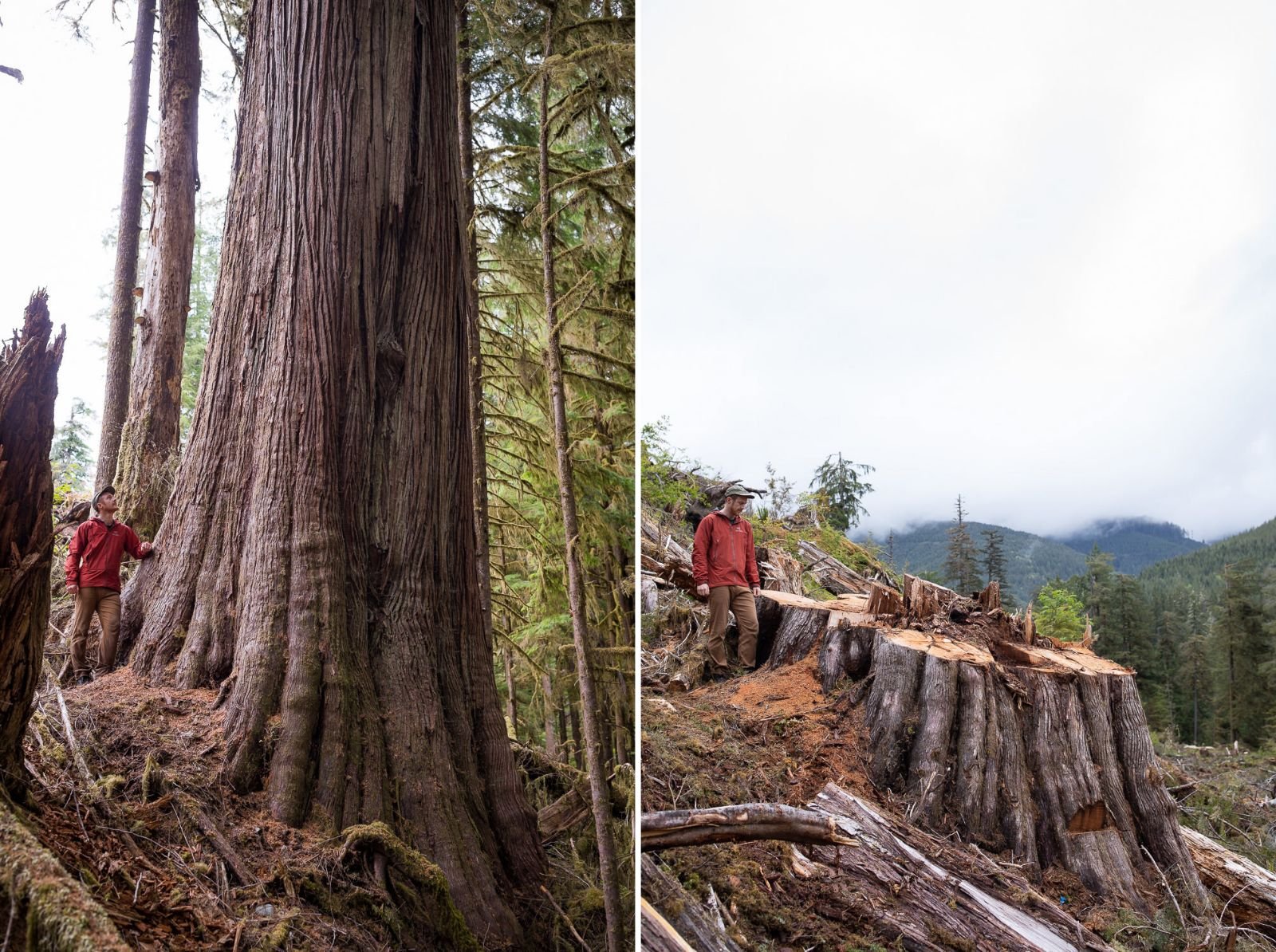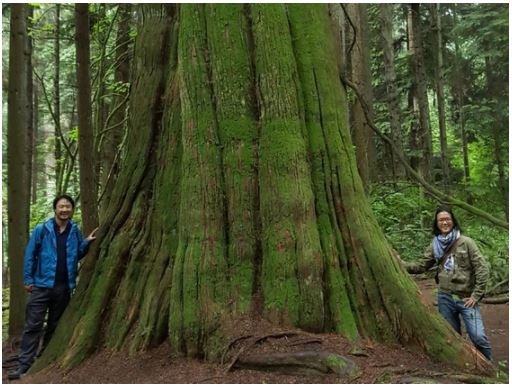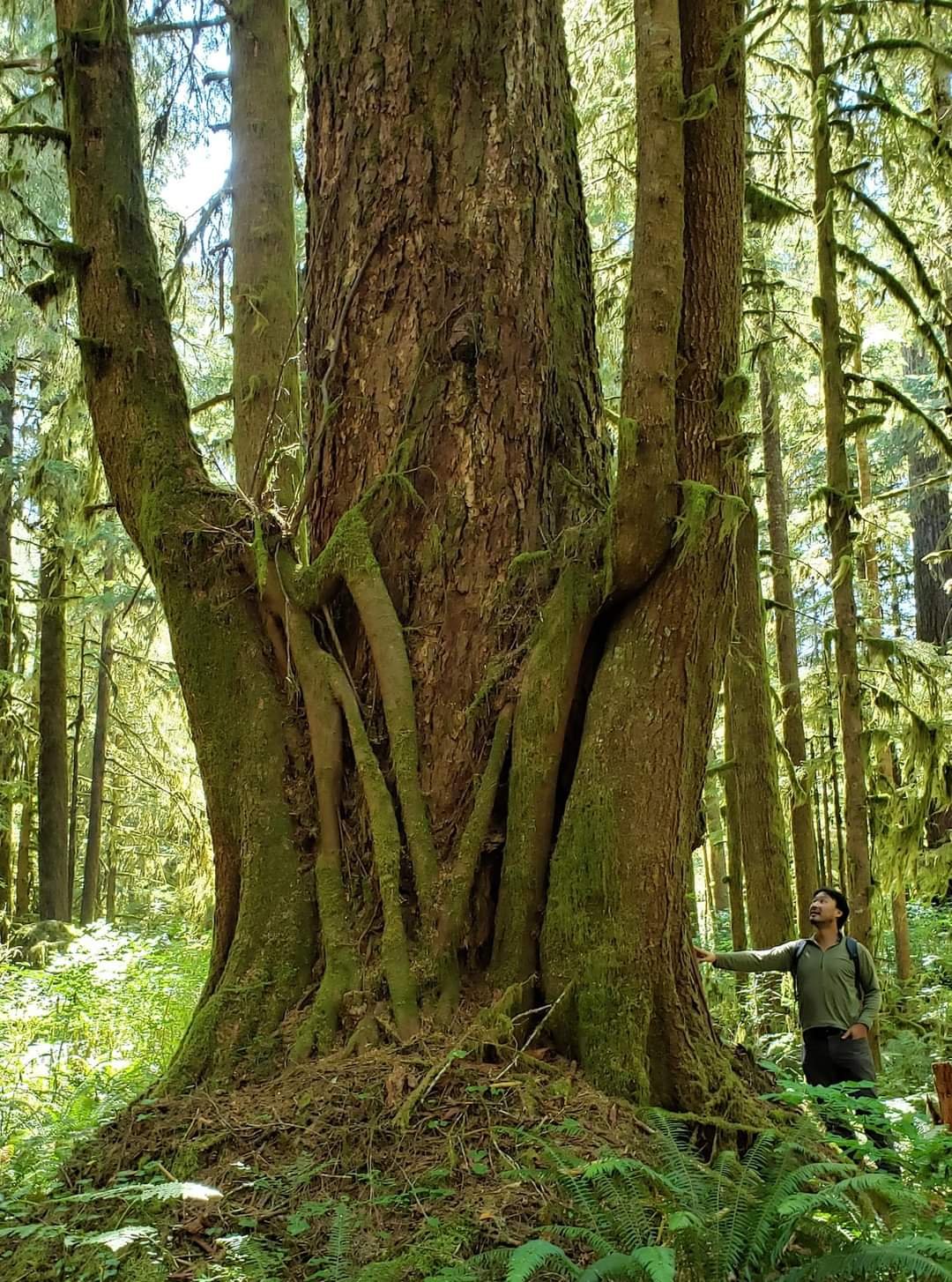Yesterday, the BC government released new and misleading statistics about old-growth logging on the one year anniversary of its science panel’s recommendations that logging should be deferred on millions of hectares of the most at-risk old-growth forests in BC. In November of 2021, the province’s independent science panel, the Technical Advisory Panel, recommended that the rarest, grandest, and oldest fraction of the remaining unprotected old-growth forests in BC, totalling 2.6 million hectares, be deferred from logging, while the province developed new management policies and legislation based on its Old-Growth Strategic Review panel’s recommendations.
Read moreMedia Release: Spin-filled Announcement Reveals BC Government’s Failure to Ensure Net Gains in Old-Growth Logging Deferrals
An ancient redcedar cut in the Caycuse Valley in 2021 on southern Vancouver Island in Ditidaht territory. Photo by TJ Watt




